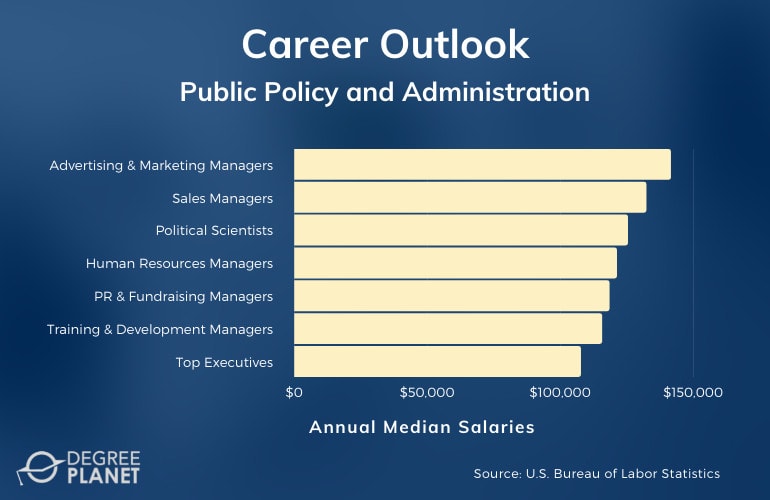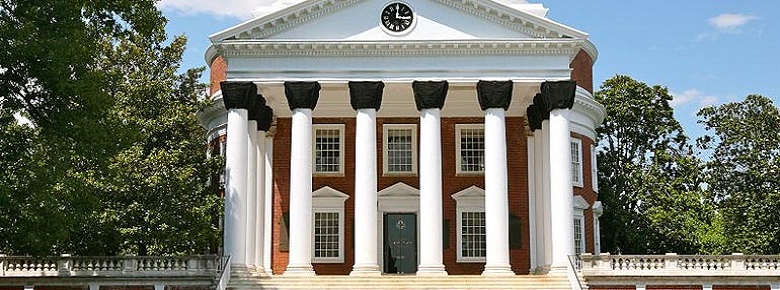Many professionals choose to differentiate themselves on the job market by earning an MBA MPP dual degree. Having an M.B.A. and M.P.P. can help you understand the inner workings of both public and private sector organizations.

MBA and MPP joint degrees can involve a greater investment of time and money than earning a single degree, but graduate-level training in these two fields is beneficial for a variety of career opportunities.
Editorial Listing ShortCode:
This guide can help you decide if this dual degree track is right for you.
MBA MPP Dual Degree Programs

You might want to earn an MBA and an MPP together if you want to be able to help a company maximize both its profits and its positive social impact.
Having advanced knowledge of both business administration and public policy can also qualify you to work for a wider variety of industries and organizations. Work settings can include major corporations, government agencies, and private nonprofits. Expertise in both fields may also be necessary for certain positions, especially in leadership.
Editorial Listing ShortCode:
For example, a nonprofit organization that advocates for change may want someone in a leadership position who is knowledgeable of public policy and also has the business skills to manage well. Some dual degree programs allow you to take classes from both programs concurrently, while others have you complete the programs consecutively, one degree at a time.
What Is an MPP Degree?
An MPP is a Master of Public Policy. In an MPP degree program, students study public finance, policy creation, implementation, and analysis and related subjects. The goal is to learn how to improve public policies for the betterment of society.
Some MPP graduates work for public agencies or provide consulting services and policy recommendations for politicians and lawmakers. Others work for nonprofit organizations that promote changing and improving current policies, often with a dedication to a specific concern, such as climate change or racial equality.
What Is an MBA Degree?

An MBA is a Master of Business Administration, one of the highest paying business degrees. MBA students study financial management, human resources management, marketing, business analytics, organizational leadership, strategic planning, entrepreneurship, and related subjects.
The goal is to learn strategies to help businesses maximize their profits. Most students who pursue an MBA intend to become business leaders of some kind. Those with an interest in government or politics may also choose to pursue an MBA in Public Policy.
Possible careers for an MBA grad include almost anything in business, finance, or management. This can include top executives, financial analysts, management analysts, and human resources managers. Some MBA holders become entrepreneurs who start their own businesses.
Public Policy and Administration Careers & Salaries

MBA and MPP joint degrees can help prepare you for a variety of careers in management, business, and financial occupations. According to the Bureau of Labor Statistics, here are some careers related to business administration and public policy, along with their median annual salaries.
| Careers | Annual Median Salaries |
| Advertising, Promotions, and Marketing Managers | $133,380 |
| Sales Managers | $127,490 |
| Human Resources Managers |
$126,230 |
| Political Scientists | $122,510 |
| Training and Development Managers |
$120,130 |
| Public Relations and Fundraising Managers | $119,860 |
| Administrative Services and Facilities Managers |
$99,290 |
| Top Executives | $98,980 |
| Management Analysts | $93,000 |
| Social and Community Service Managers | $74,000 |
With a joint MBA/MPP degree, you can be prepared to work in both public and private corporations, government organizations, or nonprofits.
Editorial Listing ShortCode:
Some professionals rise to top executive positions, while others work within a variety of departments, such as sales, public relations, or human resources.
Joint MBA and MPP Curriculum & Courses

In MBA/MPP programs, students take courses in both business administration and public policy. Here are some examples of courses you may find in this type of joint program:
- Markets and Market Failures: You’ll explore economic reasons why markets may sometimes experience a disequilibrium between supply and demand.
- Quantitative Analysis and Empirical Methods: You’ll learn how to summarize large representative data samples.
- Policy Design and Delivery: You’ll learn about how to develop policies with the intention of solving problems.
- Race and Racism in the Making of the US as a Global Power: You’ll study the history of racial inequality in the United States and its long-term effects.
- Fundamentals of Negotiation Analysis: You’ll learn about different strategies for negotiating and how to identify the needs and wants of everyone involved to reach the most effective solution.
- Enhancing Your Personal Leadership Effectiveness: You’ll study the traits of a successful leader, with the intention of improving your own leadership skills.
- Economic Analysis of Public Policy: You’ll study how public policy can have both intentional and unintentional financial effects on the sales of goods and services, employment rates, inflation, and more.
- Politics and Ethics in Unstable Times: You’ll discuss decision-making about right and wrong behavior, with a focus on voting and other political activities, and you’ll explore how to maintain ethical decision-making in unpredictable situations.
- Internship: You’ll gain actual work experience related to business administration, public policy, or both.
- Joint Degree Program Seminar: You’ll cover how concepts in business administration and public policy relate to one another.
Exact course titles and requirements will vary at different universities.
MBA/MPP Dual Degree Programs Pros and Cons

Here are some pros to pursuing an MPP/MBA dual degree program:
- It could open up more job opportunities. With these two degrees, you could potentially qualify for positions in either business administration or public policy or for positions that use knowledge from both fields.
- It could potentially save time. If you know you want both degrees, earning them through a dual program is often more efficient than getting each degree separately. With a dual degree program, you can work toward both degrees at once, often through a joint curriculum.
- It can potentially save money. Earning two degrees through a joint program often costs less than earning two degrees separately.
Here are some possible disadvantages to pursuing a MBA/MPP dual degree:
- It could take more time to complete. Earning two degrees through a dual degree program still takes longer than earning just one degree.
- Both fields may not be relevant to your career goals. For instance, if you are primarily interested in the financial aspects of running a business, you may prefer to get just an MBA.
- It could be a significant financial commitment. A dual degree typically costs more than earning a single degree since it requires more coursework. The cost can depend on your chosen school’s tuition and how much financial aid you can qualify for.
You may want to carefully consider your career goals when deciding whether to commit to a dual degree program.
MBA MPP Programs Admissions Requirements

Here are some common admissions requirements for MBA MPP dual degree programs:
- Bachelor’s degree. A bachelor’s degree is often required from an accredited college or university, preferably in a field related to business administration or public policy.
- Essays. You may be asked to write a separate essay for each department.
- Resume. A school will often request a resume listing your professional experience, preferably in business administration or public policy.
- Letters of recommendation. Letters of recommendation are often written by work supervisors or former instructors.
Some universities also ask for GRE or GMAT scores, but this is becoming less common.
Accreditation

Regional accreditation is a process in which colleges and universities are evaluated by an outside agency to verify that they meet certain standards. Attending an accredited school helps ensure that you receive a high-quality education.
Enrolling in an accredited college can also be a precondition for obtaining financial aid. It can make it easier to transfer credits to a different school as well. You can usually find out if a school is accredited, and who their accrediting agency is, by visiting their website.
Editorial Listing ShortCode:
You can learn more about accreditation and how to find accredited schools by visiting the Council for Higher Education Accreditation (CHEA).
Financial Aid and Scholarships

As a graduate student, there are many possible financial aid opportunities you could apply for, including state and federal financial aid, employer programs, and scholarships.
You can start the financial aid process by filling out the Free Application for Federal Student Aid, commonly known as the FAFSA. Some dual degree programs offer merit scholarships and fellowships that not only provide financial aid but also look good on resumes.
In cases where there are scholarships available specifically for business administration or public policy students, you may be able to apply for either one as a dual degree student.
What Can You Do with an MBA MPP Dual-Degree?

One reason to opt for a dual degree is the versatility. Possible career options for an MBA MPP dual degree holder include management positions in human resources, marketing, public relations and fundraising, and social and community service.
While MBA graduates typically work for corporations, those with an MPP also have the option of working for government agencies or nonprofit organizations. Aspiring entrepreneurs may even create their own NGO.
How Long Does It Take to Get an MPP/MBA Joint Degree Online?

MPP MBA joint degree programs generally take between 2 to 4 years to complete. Most students in these types of programs take classes full-time.
Completion time for joint degree programs can vary significantly depending on your university’s requirements. These factors can include how many credit hours are needed, what scheduling options are available, and whether there are thesis or internship requirements.
What’s the Difference Between an MPA vs. MPP Degree?
Here are some key differences between a Master of Public Administration (MPA) and a Master of Public Policy (MPP):
- Public policy: Public policy focuses on analyzing public policies and their effects. An MPP teaches more about research methodology so students can be prepared to use research to determine policy needs.
- Public administration: Public administration focuses on the organization and operations of the public agencies that implement the policies. An MPA teaches practical knowledge for running an organization, such as budgeting and contract negotiation.
In addition to an MBA and MPP dual degree option, you can also choose to earn an MBA and MPA dual degree at a growing number of universities.
What’s the Difference Between Public Policy vs. Political Science?
Here are some key differences between public policy and political science.
| Public Policy | Political Science |
|
|
There is some overlap in the courses you will take while studying either public policy or political science.
Is It Worth Getting an MBA/MPP Dual Degree?

Yes, an MBA/MPP dual degree is worth getting for many students. The Bureau of Labor Statistics currently projects that employment in management occupations will grow by 8% over the next decade, while employment in business and financial occupations will grow by 7%.
Editorial Listing ShortCode:
An MBA MPP dual degree can enable you to qualify for many different positions in these complementary fields. Through this type of specialized training, you can acquire advanced knowledge of business operations as well as the ability to analyze social impacts.
Universities Offering Dual MBA and MPP Degree Programs
Methodology: The following school list is in alphabetical order. To be included, a college or university must be regionally accredited and offer degree programs online or in a hybrid format.

Brandeis University’s dual MBA and MPP degree program is an intensive program that lasts for six semesters and includes 102 credit hours of coursework. One of the semesters is a summer semester. Courses include Financial Accounting, Leadership and Organizational Behavior, Economic Analysis for Managers, and Social Policy Analysis: Technique and Application.
Brandeis University is accredited by the New England Commission of Higher Education.

The MPP and MBA dual degree program from Duke University is designed to teach students how to develop efficient and equitable solutions to broad population concerns.
The program can typically be completed in 3 years. Students are expected to complete either a summer internship overseas or an internationally focused thesis. The program aims to prepare graduates for careers in entrepreneurship, government, NGOs or nonprofits, and more.
Duke University is accredited by the Southern Association of Colleges and Schools Commission on Colleges.

Georgetown University’s dual MBA and MPP degree program can typically be completed in 3 years. The first year is spent studying public policy, the second year is spent studying business, and the third year includes both. The program aims to help students better understand the operations of organizations in the public, private, and nonprofit sectors.
Georgetown University is accredited by the Middle States Commission on Higher Education.

Harvard University offers a joint MBA and MPP degree program. Students are required to take all of the core classes for both the MBA and the MPP and then have a wide range of elective options from both programs. Students are expected to spend the first year studying public policy, the second year studying business, and the third year doing some of both.
Harvard University is accredited by the New England Commission of Higher Education.

Pepperdine University offers a joint Master of Public Policy and Master of Business Administration degree program. It is designed to be a 3 year program that can help prepare students for work in the private sector, nonprofits, or the government. There are a variety of specializations and concentrations available in both the MPP and MBA programs.
Pepperdine is accredited by the Western Association of Schools and Colleges—Senior College and University Commission.

Rutgers University offers a Master of Public Policy and Master of Business Administration dual degree program. Prospective students need to apply separately to each individual program to be considered for the dual degree. The MBA requires the completion of 60 credits, and the MPP requires the completion of 45 credits. Each program accepts twelve credits from the other toward its degree. Internship opportunities are available.
Rutgers is accredited by the Middle States Commission on Higher Education.

The University of Chicago offers a joint MBA and MPP degree program. The core curriculum includes economics, sociology, political science, statistics, econometrics, political economy, organizational theory, and program evaluation.
The program can typically be completed in 3 years. Students are expected to complete a public-policy-related internship the summer after their first year and a business-related internship the summer after their second year.
The University of Chicago is accredited by the Higher Learning Commission.

The University of Maryland offers a Master of Business Administration and Master of Public Policy dual degree program. It requires the completion of 66 credits, with at least 30 credits from business courses and at least 30 credits from public policy courses. The program can usually be completed in 5-6 semesters.
The University of Maryland is accredited by the Middle States Commission on Higher Education.

The University of Minnesota offers a Dual Master’s in Business Administration and Public Policy. This program is designed for students pursuing careers that require expertise in both policymaking and business management. On average, students can complete their studies in 3 years. Classes cover topics such as public affairs, strategic management, supply chain operations, and business ethics.
The University of Minnesota is accredited by the Higher Learning Commission.

The University of Virginia offers an MBA and MPP dual degree program. The program usually takes 3 years to complete. Prospective students must apply separately to the school of business and the school of public policy, and if admitted to both, must get permission from the registrar to pursue a dual degree.
The University of Virginia is accredited by the Southern Association of Colleges and Schools Commission on Colleges.
Getting Your MPP MBA Joint Degree Online

The fields of public policy and business administration complement each other well. If you are motivated to earn you MPP MBA joint degree, there are many options available for doing so.
For example, a growing number of universities offer part time masters in public policy programs that combine with MBA programs. Others also offer this combination as an online option.
Dual masters degree programs online can enable you to earn your degrees without relocating or commuting to a campus. These programs tend to feature online platforms where you can still get the benefits of classroom discussions and communication with your instructors.
Some of the best online business degree programs that combine with ones in public policy may also supplement with on-campus intensives or provide internship opportunities so you can get real-world experience. You can start exploring accredited universities today to find the MPP MBA dual degree program that best fits your learning needs and professional goals.

